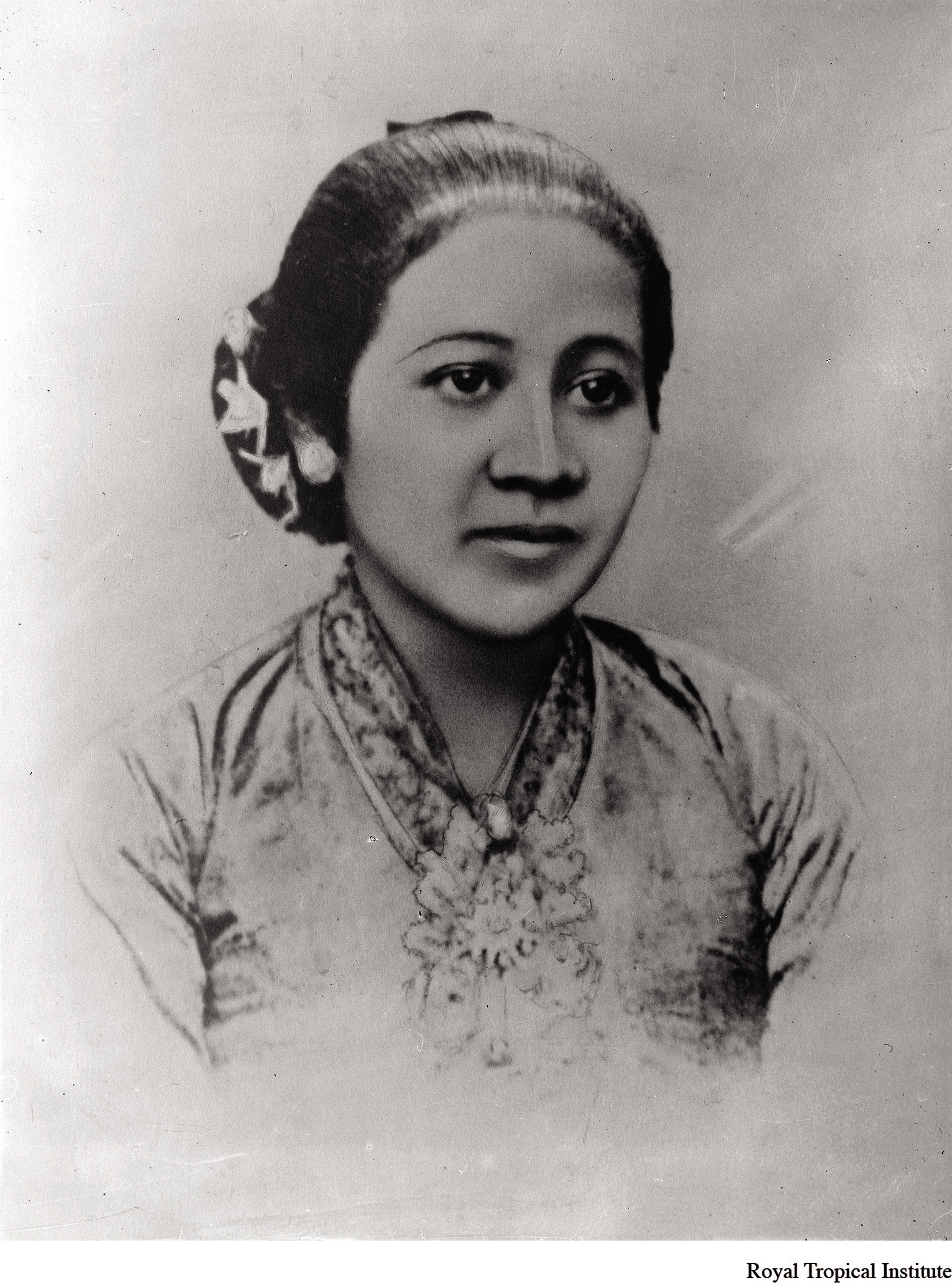ZOOMING IN: Kartini: Feminism and Nationalism in Java

The ideas of the European Enlightenment and the Atlantic revolutions resonated deeply in the life of a remarkable young Javanese woman named Kartini during the late nineteenth century, when her country was part of the Dutch East Indies (now Indonesia).26 Born in 1879 into a large aristocratic Javanese family, young Kartini attended a Dutch elementary school where she learned the Dutch language and observed the relative freedom of her European classmates, in sharp contrast to the constraints and ritualized interactions of her own family. At the age of twelve, in keeping with Javanese Muslim custom, Kartini was abruptly removed from her school. For the next four years, she never left her home.
Through her father, a high official in the Dutch colonial administration who much admired Western education, Kartini still had access to Dutch books, and later she was tutored by several Europeans, including one woman with strong socialist and feminist leanings. She also read widely on her own and began an extensive correspondence, largely with Dutch friends in the Netherlands, which lasted until her death. By the time she was twenty, Kartini had acquired an impressive Western education and a network of relationships with prominent Europeans both in the Netherlands and in Java.
From her letters, we learn something of Kartini’s thinking. In light of her exposure to Europeans and European thought, she found the absolute subordination of Javanese women completely unacceptable. The seclusion of girls, the total separation of the sexes, the absence of educational opportunities—
Kartini was equally outraged by particular features of Dutch colonial rule, especially its racism. Conscious of her membership in a “despised brown race,” she deplored the need for “creeping in the dust” before Europeans. Javanese generally were not supposed to speak Dutch with their colonial masters, as if “Dutch is too beautiful to be spoken by a brown mouth.” And yet, for Kartini, it was Dutch education and its universal Enlightenment values—
Nonetheless, Kartini openly embraced much of her own culture—
Kartini’s fondest hope was to contribute to that emancipation by studying in the Netherlands and then opening a school for girls in Java. But these grand dreams were thwarted by opposition from her own family, from Javanese officials, and from much of the Dutch colonial bureaucracy. Java’s leading newspaper denounced her intentions as “outrageous,” and local gossip had it that she simply wanted to marry a European and become a Europeanized woman. A backup plan to study in the colonial capital of Batavia likewise came to naught with a sudden announcement in mid-
Although Kartini felt that she was “done with all personal happiness,” she determined to make her marriage a model for the future, actually meeting her husband before the wedding and extracting from him a written promise that she could continue with her plans to create a school for girls. But she soon became pregnant, and four days after the birth of her son in 1904, she died at the age of twenty-
Question: In what ways was Kartini’s life shaped by living at the intersection of Javanese and European worlds?